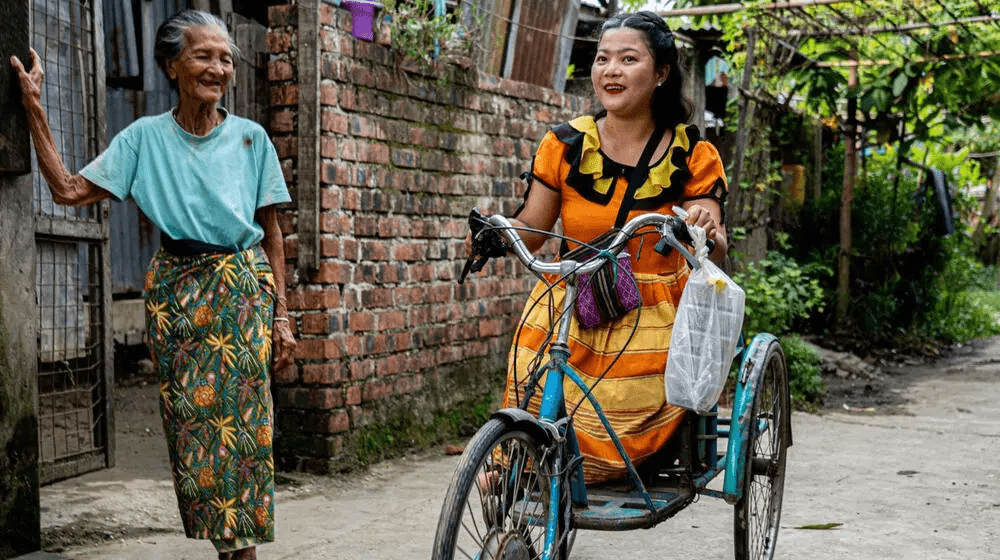YANGON, Myanmar – “I applied for a job at a local sewing shop. When they saw my physical impairment, they rejected my application without any other reason,” said Myo Myo, a 19-year-old woman living in Yangon, Myanmar.
“I was really sad – why didn’t they want to give me a chance?”
According to a 2019 survey, nearly six million people in the country are persons with disabilities. As is the case worldwide, members of this community in Myanmar face unequal access to health care, education, opportunities and employment – discrimination that has only got worse amid the country’s political crisis and the COVID-19 pandemic. In recent years, persons with disabilities (aged 15 and up) were more than twice as likely to be unemployed.
For the nearly 3.5 million Myanmar women and girls with disabilities, gender inequality compounds these challenges. They may face double prejudice when accessing reproductive health information and services, for instance, as stigma due to gender norms combines with biased attitudes regarding their ability to exercise bodily autonomy.
“There is no equal opportunity and equal rights for women in our society – but it’s even worse for women and girls with disabilities,” Myo Myo said.
Overlapping and intersectional challenges heighten vulnerabilities for women and girls with disabilities worldwide. In some countries, the share of persons with disabilities living under the poverty line is double that of the wider population, and UNFPA research shows women with disabilities are up to ten times more likely to experience gender-based violence.
Denials of sexual and reproductive health information and services for this community are all too common. More than half of women with intellectual disabilities have been told they should not have a child.
“People think that we cannot do anything,” said 20-year-old Sabai, who lives in Yangon. “We want to show them our capacity – that we can do things like other people.”
On the ground in Myanmar, UNFPA works with local organizations to empower women and youth with disabilities to fully participate in public life. Supported initiatives include those that promote awareness of sexual and reproductive health and rights and gender-based violence, and that build business skills, among others.
Both Myo Myo and Sabai have attended UNFPA-backed training sessions on developing vocational skills, and received seed money to help them start their own businesses.
“Together with international and local organizations, we can promote awareness to change community perceptions and end discrimination against persons with disabilities,” Myo Myo said.
What it means to be “able”
The UN Convention on the Rights of Persons with Disabilities (CRPD) reaffirms that all persons with disabilities must be guaranteed human rights and fundamental freedoms. Myanmar ratified the CRPD on 7 December 2011. Despite this, rights violations continue to happen to persons with disabilities in the country, as they do to people around the world.
Globally, activists and advocates are working to change that. “Our interventions significantly contribute to initiating and promoting a disability-inclusive society in Myanmar,” said UNFPA Myanmar Acting Deputy Representative Eri Taniguchi.
Among the women with disabilities those interventions have made an impact on are Myo Myo and Sabai, who today both run small businesses. Myo Myo sews, knits and crochets from home, and Sabai sells rice rolls and grilled fish at a shop she opened, delivering orders on her e-bike.
“Like everyone else, I have a dream to achieve. I want to show the world that we are ‘able’, meaning we have the ability to contribute to our community,” Sabai said.



